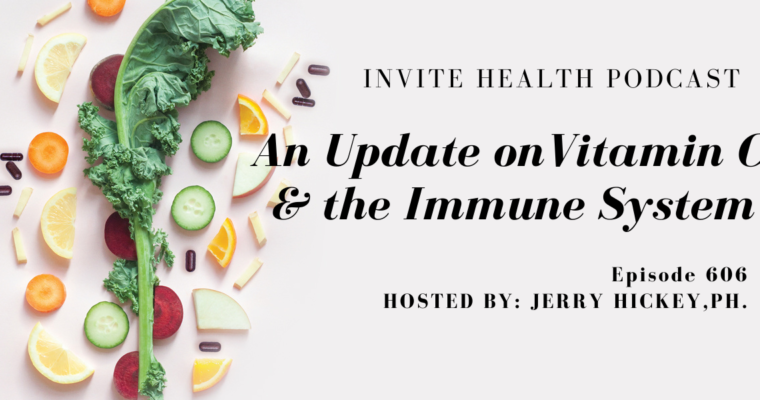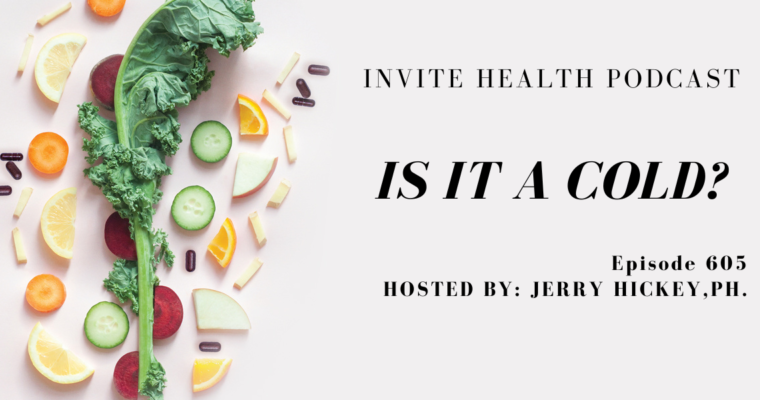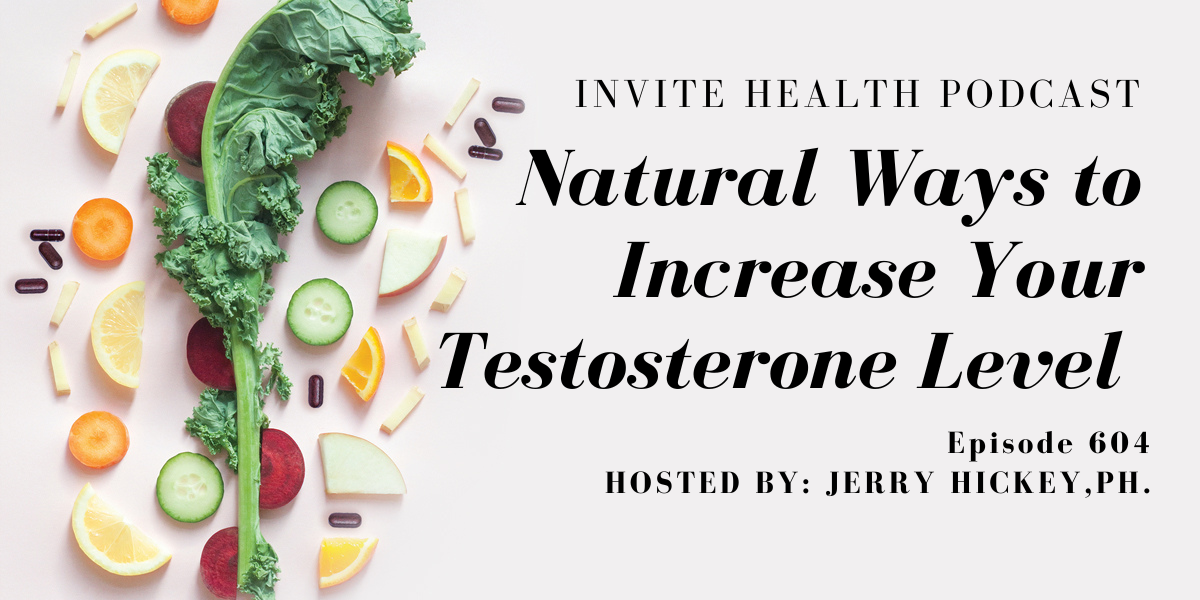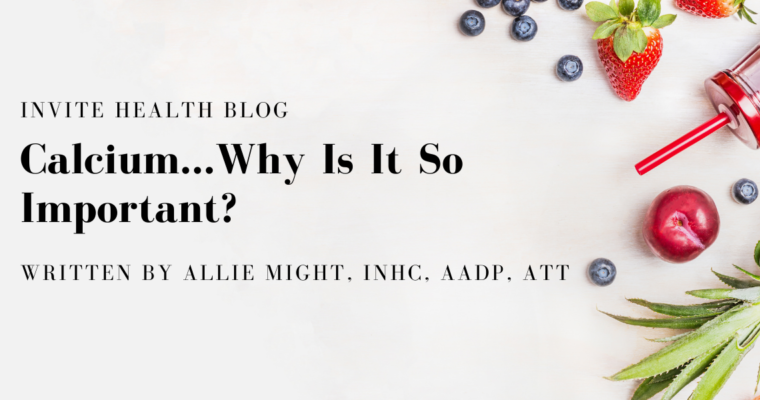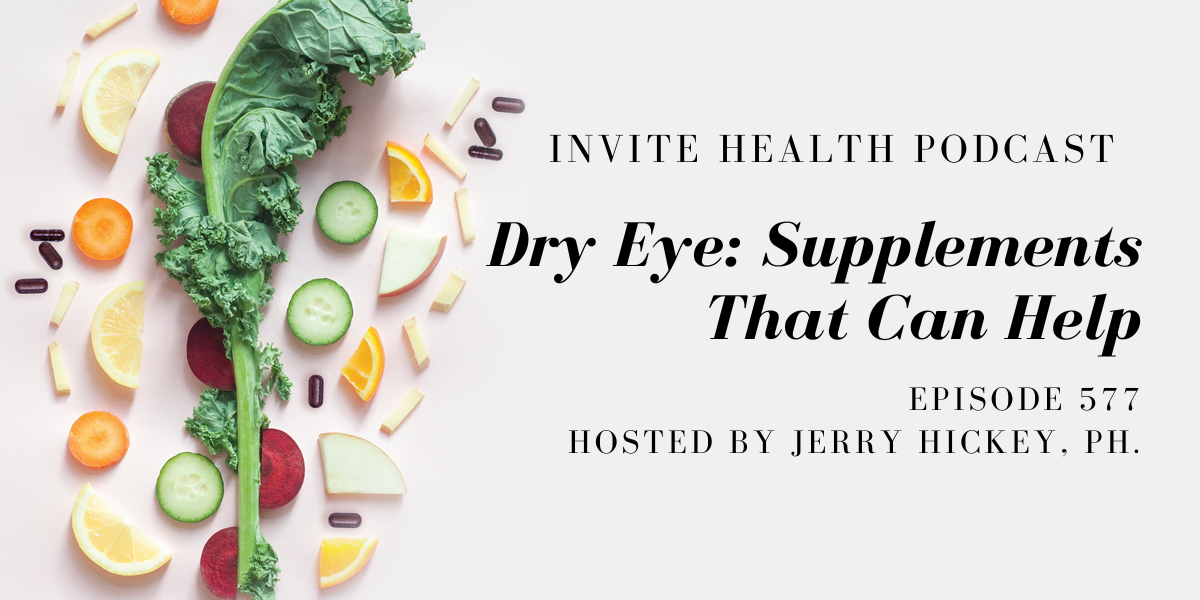dry eye
Subscribe Today!
Please see below for a complete transcript of this episode.
Dry Eye: Supplements That Can Help- InViteⓇ Health Podcast, Episode 577
Hosted by Jerry Hickey, Ph.

*Intro music*
InViteⓇ Health Podcast Intro: Welcome to the InViteⓇ Health Podcast, where our degreed healthcare professionals are excited to offer you the most important health and wellness information you need to make informed choices about your health. You can learn more about the products discussed in each of these episodes and all that InViteⓇ Health has to offer at www.invitehealth.com/podcast. First time customers can use promo code PODCAST at checkout for an additional 15% off your first purchase. Let’s get started!†
*Intro music*
Jerry Hickey, Ph.: [00:00:40] Dry eye syndrome is very common. With dry eye syndrome, your tears do not adequately lubricate your eyes and this leads to all kinds of symptoms and the symptoms can be terrible. Here’s the issue, dry eye syndrome affects up to 70% of older people. So it’s very common in older people. This is according to data in the journal Experimental Gerontology, but it can happen in any age group. Nutritional supplements have been shown to help, so we’ll go over that.† [00:01:09]
[00:01:09] So welcome to my episode, Dry Eyes: Supplements Can Help. My name is Jerry Hickey. I’m a licensed pharmacist and I specialize in nutrition. I’ve been studying nutrition for decades. You can find all of the InVite podcast episodes for free wherever you listen to podcasts or just go to invitehealth.com/podcast and please subscribe and leave a review because that’s very helpful. You can also find InVite on Facebook, Instagram and Twitter at InViteⓇ Health. So let’s get going because this is common and it can be helped.† [00:01:41]
YOUR EYE DOCTOR NEEDS TO KNOW THIS SUPPLEMENT – INVITE HEALTH PODCAST, EPISODE 529 >> Listen Now!
[00:01:42] Now, everything in medicine, everything in our biology, everything in nutrition has at least two names. So Dry Eye Syndrome is also known as Dysfunctional Tears Syndrome, Dry Eye Disease, Corrado Conjunctivitis, Sica and many more names. But they’re all the same thing. Now, the symptoms. Well, you’re going to get burning in your eyes. It’s going to feel like there’s a foreign body in the eye, like an eyelash, it’s going to feel gritty. Your vision could get blurred, your eyes get tired very easily. So they’re itching, they’re stinging, they get very sensitive to bright lights frequently. You can also develop discharge, you know, like that green stuff in the corner, your eyes or oddly and paradoxically, more tears but they’re not lubricating the eyes.† [00:02:32]
[00:02:33] So causes; well, there’s two types of glands for the eyes. There’s the lateral mole glands on the edges of the eyes that release the liquid, the fluid, the watery stuff. But then there is Meibomian, Meibomian glands, and it’s called Meibomian dysfunction. It’s a very common cause of dry eye syndrome, a.k.a. dry eye disease. These are glands along the rims of your eyelids, and they produce an oily sebum like substance that slows the evaporation of your tears. So obviously, if you’ve got a problem, with your Meibomian glands, the tears are going to evaporate very quickly. So common cause; one way to help sometimes the glands just get caked up with soot and dirt. So wash your lids, you know, use a no tear shampoo, the baby shampoo is to wash your lids.† [00:03:26]
[00:03:28] Now, drugs, this is very common among older people. And of course, this could be reversed if you can substitute a different drug or get off the drug. And the issue also is many older people are not on one drug. It’s called polypharmacy they’re on many drugs. And the more drugs you add together, the greater the risk of developing dry eyes. And 2009, a physician’s desk reference, which is usually abbreviated PDR listed a number of drugs out of the top 100 prescribed in America that caused dry eyes. Out of the top 100 selling drugs, prescribed drugs, 22 cause dry eyes. 56% of them could possibly contribute to dry eyes. So if you mix two or three of these drugs together, you’re going to have dry eyes. Now, many of them also cause dry mouth, by the way dry mouth is also a bad thing because when your mouth is dry, bacteria build up and they cause all kinds of inflammation that could travel throughout the body. Not a good thing.† [00:04:29]
[00:04:31] So here’s some of these drugs. This is from the Journal of Ophthalmology. Hormone replacement therapy, male hormones, too. So the hormone replacement therapy, the estrogen, progesterone therapy, male hormone therapy, testosterone, antihistamines, very common. People are taking antihistamines for allergies. There are better ways to treat allergies. Drugs for anxiety, drugs for depression. Aspirin. Aspirin could cause dry eyes, ibuprofen, yeah and sage could be toxic to the eyes. Atenolol, Atenolol is a beta blocking drug that they use for a racing heart or to help with heart failure to keep people alive or to help with high blood pressure, decongestant drugs, drugs for an enlarged prostate, also drugs for bladder issues can cause dry mouth. Even statin drugs can affect the eyes a little bit so a lot of drugs affect the eyes a little bit. So if you add up two or three, these drugs that affect your eyes a little bit, it winds up affecting the eyes a lot.† [00:05:33]
[00:05:35] Now, low humidity, like in the winter, your house is as arid as the Gobi Desert. Your house gets very dry, so you have to keep some source of fluid around, you know, like a vaporizer. Or if you live in a dry region of the country, you know, like a desert, like out of Arizona or New Mexico.† [00:05:51]
[00:05:53] Another common cause is Sjogren Syndrome, it’s an autoimmune disease. Now there’s at least 100 autoimmune diseases where your immune system attacks your body. So, for instance, rheumatoid arthritis pretty much just attacks your joints, although it can attack other organs, too, and other tissues. But rheumatoid arthritis attacks your joints and systemic lupus erythematosus can attack your heart and your skin and and your kidneys, etc. So in Sjogren’s syndrome, your immune system typically attacks your lacrimal glands, those are the ones on the eyes that secrete the watery substance, into your tears. And it also attacks your salivary glands in your mouth, you know, the salivary creating glands it could be much worse than that. They can attack other things, too. It’s more common after menopause, obviously, it’s more common in women.† [00:06:43]
[00:06:45] Believe it or not but it’s temporary watching too much TV. Huh? I like to binge watch series, you know, like Peaky Blinders, but I take supplements that prevent the eyes from getting tired and dried out like I take lutein, I take a product called Lutein Plus HxⓇ that would prevent that from happening. But watching too much screen time, like on a computer, it reduces blinking. And when you reduce blinking, that contributes to dry eyes. Blinking is one of the most important defenses of your eyes, by the way. You blink extremely quickly, for instance, if something a projectile is coming out your eyes, but you also normally blink 15 to 20 times per minute. Now the blinking triggers, the formation of tears and a release of the tears. So blinking is actually really good for your eyes, because tears, first of all, tears contain antimicrobial agents like lysozyme and lactoferrin, Aleppo, calcium and immunoglobulins, so they help protect you from viruses and bacteria. But tears can also cleanse our eyes to some degree, as well as lubricating the eyes. So these are really important. So remember to blink.† [00:07:59]
[00:08:00] Obviously, if you don’t have enough tears, it’s going to lead to dry eye syndrome. Or if your tears are too thick, this happens or if your tears evaporate too quickly. Lacking vitamin A, vitamin A is important for many tissues and for the immune system and many organs. But lacking vitamin A contributes to dry eye syndrome and poor vision by the way. Now, here’s an interesting thing, because diabetes is also a risk factor that I’ll get into for dry eye syndrome. A lot of people get their vitamin A from vegetables, you know, like like broccoli and sweet potatoes, etc. But that’s not really vitamin A, that’s beta carotene. And beta carotene is stored in the liver and it’s slowly in a sensible, controlled fashion, converted to vitamin A. That’s why beta carotene can never be toxic. And diabetics and also people with thyroid disease. They have trouble converting beta carotene to vitamin A. So that might be a reason why people with diabetes have dry eyes. But we’ll go into that a little bit more in a minute. So lacking vitamin A is a cause. So that’s why when I make a supplement for a diabetic or somebody with thyroid disease, I like to put a little bit of natural vitamin A in there.† [00:09:18]
[00:09:19] Contact lenses; while contact lenses kill off the healthy bacteria of your eyes, your eyes have a microbiome just like your skin and just like women’s fragile tissue and like their breast milk and their milk ducts and your intestines. So you have these microbiomes living with you, a complex mixture of bacteria and viruses and yeast, etc. and when you wear a contact lens, it kills off your good bacteria and it can lead to dry eye syndrome. But I mean, that’s the reason why it leads to infections. You’re killing off the good bacteria to protect the eyes.† [00:09:52]
[00:09:54] Lasik surgery, be careful with this stuff. This is the laser surgery of the eye for Better Vision. I’ve had people had developed some serious reactions to Lasik surgery, but I don’t know how common that is. That might not be common at all. But the Lasik surgery, when it causes dry eye syndrome, it normally clears up within 2 to 3 months. But it doesn’t always. Sometimes with lasik surgery, the dry eyes become permanent.† [00:10:25]
[00:10:26] Now let’s talk about diabetes, there’s different types of diabetes like this, gestational diabetes that women suffer from when they’re pregnant. And there’s type one diabetes where the immune system attacks the pancreas, the insulin producing cells. And then there’s type two diabetes, which is by far the most common that adults typically develop, although it’s shifting to younger and younger people because of the obesity epidemic in the United States and throughout the world. But generally, we saw type two diabetes in older people. One cause of that could be they may not have enough receptor sites for the insulin, but the more common causes, they’re not exercising and they’re chubby, they’re overweight. So the term diabetes mellitus covers all types of diabetes, but those are the three most common forms. Type one diabetes, type two diabetes and gestational diabetes. So in a journal International Ophthalmology, researchers grouped together four different studies, over 2,500,000 subjects in the studies. There was a significant association between forms of diabetes and dry eye disease. Dry eye syndrome. Now, for one thing, diabetes kills off your friendly bacteria. So this can affect the eyes, just like you can affect the heart and the brain and the liver and many other organs and tissues. But also, diabetes makes it hard for you to form vitamin A out of the beta carotene in fruits and vegetables. So that’s a problem without Vitamin A. That’s an issue for the eyes. And also, diabetes causes inflammation pretty much everywhere in the body, including in the eyes. So this is going to confound the normal function of the eyes.† [00:12:06]
[00:12:07] So what are some solutions for dry eye syndrome? Well, artificial tears. So they use polymers that make the eyes lubricated, like, you know, the lubricating eye drops, the artificial tears. Now, don’t let the term polymers scare you. You’re actually made out of polymers. The number one ingredient in your body is water. And the number two ingredient is collagen, which is a polymer. A polymer just means you have a long chain of one single substance and that chain is repeated over and over and over again. So, for instance, 30% of your body or something like that is collagen around that. It makes up like 36% of your bones, 67% of collagen in your joints, about 70% of your skin. Your skin is made out of polymers because the other polymer in there is hyaluronic acid, which we’re going to get to right now, because hyaluronic acid is the typical polymer they use in artificial tears.† [00:13:04]
[00:13:06] Now hyaluronic acid is an injection they shoot into people’s knees who for some reason can not have knee replacement surgery. But their knee is totally destroyed and each one is totally destroyed. They get it usually from the Cox comb. So they make synthetic hyaluronic acid. That’s a polymer. And a thing about hyaluronic acid, it’s a hydrogel. It holds many times its weight and water like at least ten times its weight in water. So when you put drops of hyaluronic acid into your eyes along with fluid and lubricants, etc., it really does a pretty good job of of wetting your eyes and keeping them wet. So in the daytime, they usually give you drops. And at nighttime, they usually give you a cream or an ointment. The reason they can’t give you a cream and ointment in the daytime is it can blur your vision temporarily.† [00:13:59]
[00:14:01] So let’s look at some of the supplements and I’d say top of the list is whatever gives you fish oils. And I wouldn’t count on eating fish unless you’re eating it every day. So I would definitely do fish oils or krill oil. There is one study that was riveting that showed that krill oil may have been superior to fish oils, we’ll get to that. So the Cochrane database of systematic reviews is pretty dependable, it’s highly thought of, and they review anything to do with the body and health and science, the health of the body. So they look at drug studies and studies on different diets and studies on different laser techniques and study, you know, anything that affects the body. Different surgeries, different supplements, different herbs. And what they do is they go around the world and they appoint specific people to review the studies. Typically, somebody who has some background and what they’re reviewing. So in this case, they picked Johns Hopkins Bloomberg School of Public Health and the IBM Watson Health Center in Baltimore, Maryland, and also the University of Melbourne over in Australia. And they looked at 34 randomized controlled human clinical trials from 13 countries. That’s a lot of data, and they showed that the fish oil ingredients to EPA and the DHA increase tear production and improve the quality of your tears. Now so that could be fish oil, that could be krill or eating fish every day.† [00:15:45]
WHY OMEGA-3S ARE IMPORTANT? – INVITE HEALTH PODCAST, EPISODE 569
[00:15:47] So, I mean, this makes sense. Dry eye syndrome becomes more common with age. Now, this is just a hypothesis. Nobody’s ever put this together, to my knowledge. Dry eye syndrome becomes more common with age. The amount of fish oils in your eyes, declines with age. Fish Oils are very important to your vision they’re needed for fine vision, they’re needed for color vision, they need it to prevent inflammation in the eyes. So it makes sense. Now, if you try a supplement for dry eyes, you have to give a time because anything that works in the eyes that you swallow because you’re swallowing the fish oils, you’re not rubbing them on your eyeballs anything that you swallow, it takes time to build up in the eyes. And first of all, it has to travel through the brain and the brain grabs whatever it needs and things that are good for the eyes are good for the brain. I have never seen something that’s good for the eyes that’s not good for the brain.† [00:16:42]
[00:16:43] So the brain’s got to grab what it needs, that might not be any left over for the eyes. And this is something that occurs with age, with many things that are important for the eyes. Like zinc, lutein, zeaxanthin, fish oils. There’s less of them reaching the eyes with age because there’s less reaching the brain with age, because we absorb less from our food. And that’s just the way it is. And if there’s not enough of the brain, the brain’s going to grab what it can and very little is going to dribble down to the eyes. So if you try these supplements, give them some time and you swallow them, of course.† [00:17:18]
[00:17:19] So this is the University of Connecticut Health Center in Farmington, Connecticut, their Department of Ophthalmology. And they said, hey, fish oils, the EPA and DHEA have been shown to help dry eye syndrome. I just wanted to say that because it’s all different, researchers saying this. So here’s the journal Ophthalmology, January 2017, it’s the University of Melbourne Department of Vision Sciences because the University of Melbourne has done a lot of research on fish oils. The Peter Doherty Institute of Infection and Immunity, that’s also in Melbourne, Australia. And they took patients with dry eye syndrome and they were supplementing them with fish oils or krill oil or a placebo. Now both fish oils and krill oil made the tears more liquidy and less likely to evaporate. So better at moisturizing the eye is better at lubricating the eyes. And this is compared to placebo. But only the krill improved the symptoms of dry eye syndrome, which is also called dry eye disease.† [00:18:26]
[00:18:28] So the krill oil and this took time, didn’t happen overnight. It reduced the grittiness, the feeling of a foreign object in the eyes, you know, like dirt, less stinging, less itchiness all in all, it was actually improving the symptoms. So here’s the journal of so here’s the journal of Ophthalmological and Physiological Optics. That’s a good British journal the optometrist and optricians in Great Britain use that it gets better than the fish oils or the krill oils just making the tears more liquidy and better at lubricating the eyes, because they found that the fish oils that are in krill or fish oil capsules protect the nerves of the eyes of people with dry eye syndrome. So it’s helping put off long term damage to your your visual system.† [00:19:27]
[00:19:29] Now let’s look at some other supplements. This is the American Journal of Clinical Nutrition. It’s August 2020 at Vanderbilt University Medical Center. That’s down in Nashville. And this was along with various Chinese research institutions. So international studies are very common cooperation between researchers and scientists throughout the world are getting more and more common because of the Internet. It’s easier and texting and all this. So it was 360 patients with dry eye syndrome. They gave them a placebo or they gave them a supplement with lutein and zeaxanthin their pigments you find in fruits mostly and vegetables. But along with the lutein and zeaxanthin, there was black currant. Now that’s interesting.† [00:20:19]
[00:20:20] Black currant is also called cassis and it has these purplish deep blue pigments in it, like Malvidin that are very good for the eyes. They also used chrysanthemum and Goji Berry. Goji Berry is loaded with antioxidants, so it reduces inflammation. And the supplement was very good in people who are suffering with dry eyes from like being on computers, etc., for the eye fatigue, for the blurry vision and for the eye soreness. So it really is worth using because it’s an anti-inflammatory that kind of like supports the functions of the eyes, lutein and zeaxanthin. You can add to that some zinc, some vitamin C, some natural vitamin E, some Bilberry, some cassis berry, which is also called black currant. And you can add some what else would also be good and some natural beta carotene. The supplement will help with the eye fatigue and the blurriness, etc.† [00:21:20]
[00:21:20] So here’s the journal PLoS One, which is a great American journal that our tax dollars pay for. It’s the objective of PLoS One to spread good information throughout the world to people who cannot afford a subscriptions to medical journals. So if you were a single doctor, a single practice doctor, and some small town in North Dakota, you have access to good information. Even though you’re not making the money and you don’t have the money, you get this information for free. So PLoS One is cool, it’s heroic. So this is PLoS One January 2016. It’s various research institutions in Korea, medical schools and hospitals and clinics, etc. That’s over 17,500 patients with dry eye syndrome. And here’s what they found, when they compared people with healthy eyes to those with dry eye syndrome, the vitamin D in their blood was consistently lower in dry eye syndrome.† [00:22:24]
[00:22:24] Now, we do know that vitamin D is an anti-inflammatory. We do know vitamin D helps lower the risk of developing autoimmune diseases. And we also know that vitamin D does play some part and functions in the eyes. It’s very important in the brain, but it’s also important in the eyes. So it’s not going to hurt to take some vitamin D, if you have some dry eye syndrome, take it with food, it’s absorbed better. So here’s a little bit more evidence for vitamin D. This is a systematic review and a systematic review, which is easier to do today. Scientists and doctors and researchers going to all these different medical web sites and they gather all the data on the specific type of subject they’re looking for.† [00:23:09]
[00:23:09] So in this case, they gathered data on people with dry eye syndrome and vitamin D it’s in the journal Acta Ophthalmologica, which is a good European eye journal and it was ten studies included in their review, about 19,000 patients. Patients with dry eye syndrome had lower levels of vitamin D than patients with healthy eyes. So it’s more of the same. But here’s what they found. The worse the level of vitamin D, the lower the level of vitamin D, the worse the symptoms, the more severe the symptoms of dry eye syndrome and less the production of tears. So as vitamin D levels declined, the there was fewer tears and the health of the tears were decreasing and the symptoms were worsening.† [00:24:03]
[00:24:05] So here’s what I would recommend. If you have dry eye syndrome, using an eye drop in the daytime and artificial tears is fine. They’re nontoxic, get a good one and make sure it has some hyaluronic acid in it and which is natural to the human body by the way, your skin is about 20 or 30% hyaluronic acid that holds the moisture in to your skin. It’s also in the whites of your eyes the whites of your eyes is basically hyaluronic acid water and a little collagen and it’s in you knee joint. And then use a good vitamin for the eyes like a good one that I’ve used in the past that I give to my wife is called Macula Hx, it’s a nice combination. And then take the additional lutein, with zeaxanthin. Definitely take fish oils, like I take two a day to preserve the health of my brain and my heart, my muscles, my bones and my eyes. Cause fish oils affect all those. So take the Fish Oils because they’re good for your brain and your eyes. Take a good vision related supplement. Make sure that beta carotene and vitamin E are natural or they’re not going to work as well. The beta carotene and vitamin E have to be natural sourced. The synthetic source doesn’t work as well. And get some additional lutein and zeaxanthin and it really should help you. Make sure in that eye and vision formula there’s a good amount of zinc like 30-40 milligrams of zinc.† [00:25:36]
[00:25:38] So thank you for listening to today’s podcast episode. You can find all of our episodes for free or wherever you listen to podcasts, just go to invitehealth.com/podcast. You can also find InVite on Facebook, Instagram and Twitter at InViteⓇ Health. And of course, if you listen to the podcast, could you please subscribe and leave us a review? It’s helpful. I want to thank you for listening. Hope to see you next time in the next episode of the InVite HealthⓇ podcast. This is Jerry Hickey signing off. Have a great day.† [00:25:38]
*Exit Music*


